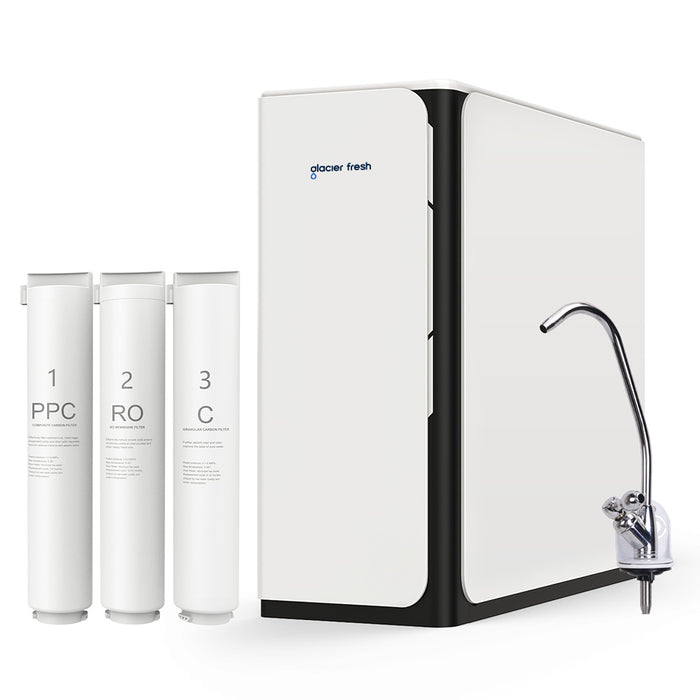Discover the Ultimate Gravity Water Filter: Unveiling Secrets You Didn't Know!
In today's world, access to clean drinking water is more critical than ever. As concerns about water quality continue to rise, many individuals are turning to gravity water filter systems as a sustainable and effective solution. These systems rely on the natural force of gravity to filter water, making them not only efficient but also user-friendly. With an increasing interest in sustainable living, gravity filters offer a practical approach to ensuring safe drinking water both at home and on the go. In this article, we will explore the ins and outs of gravity water filter systems, comparing various options to help you make an informed purchase.

Understanding Gravity Water Filter Systems
A gravity water filter system is a type of filtration device that uses gravity to pull water through a filtering medium, effectively removing contaminants. The basic components of these systems include a water reservoir, a filter element, and a collection container. Water is poured into the upper reservoir, and as it flows downward through the filter, impurities are trapped, resulting in clean water being collected in the lower chamber. This simple yet effective mechanism means that no electricity is required, making it a reliable option in various circumstances, including camping trips or during power outages.
Benefits of Using Gravity Water Filters
Gravity water filters offer several advantages compared to other filtration systems. One of the most significant benefits is their ease of use; simply fill the top chamber with water, and let gravity do the rest. Additionally, these systems require minimal maintenance, as they do not have complex parts that need regular checking or replacement. Importantly, they function independently of electricity, making them ideal for outdoor adventures or emergency preparedness. When my friend and I went camping last summer, we relied on a gravity filter to provide us with safe drinking water from a nearby stream. It was straightforward to set up and provided us with peace of mind, knowing we were drinking clean water.
Key Features to Consider When Purchasing a Gravity Water Filter
When evaluating different gravity water filter systems, several key features should be taken into account. First, consider the filtration capacity—how much water can the system filter at one time? Larger systems are suitable for families, while smaller models may suffice for individuals or couples. Next, assess the material quality of both the filter and the containers; durable materials ensure longevity and resistance to wear and tear. Additionally, consider ease of assembly and cleaning, as some models are designed for quick setup and hassle-free maintenance. A friend of mine learned this the hard way when he purchased a system that was complicated to clean, ultimately leading him to abandon it in favor of a simpler design.
Common Myths and Misconceptions
Despite their growing popularity, there are several myths surrounding gravity water filters that need clarification. A common misconception is that gravity filters are less effective than electric filtration systems. In reality, many gravity filters can remove a wide range of contaminants, including bacteria and protozoa, making them very effective for ensuring safe drinking water. It's essential to look for filters certified to meet certain water quality standards, as this can provide assurance of their performance. By understanding the actual capabilities of gravity filters, consumers can make more informed choices.
Comparative Analysis of Gravity Water Filter Systems
When comparing gravity water filter systems, it's helpful to consider various designs and materials. Some systems are made from stainless steel, which offers durability and resistance to corrosion, while others may utilize plastic, which is lightweight and portable but could be less robust over time. Filtering technologies also vary; some systems use ceramic filters, while others may incorporate activated carbon or multi-stage filtration. Each design has its pros and cons, such as weight, ease of use, and the types of contaminants they can effectively filter. Understanding these differences can guide you in selecting the best system for your specific needs.
Making an Informed Choice for Safe Drinking Water
In summary, gravity water filter systems provide a reliable and effective solution for accessing clean drinking water, whether at home, during outdoor activities, or in emergencies. By understanding their functionality, benefits, and key features, consumers can make informed decisions when purchasing a filter system. As you consider your options, think about your specific water needs and the long-term advantages of investing in a quality filtration system. With the right gravity water filter, you can ensure safe and pure water for yourself and your loved ones.







